Are you fascinated by the rich cultural heritage of Vietnam and looking to acquire a unique piece of its history? Discover the allure of Vietnamese antique textiles and artifacts, but be aware of the legal considerations. SIXT.VN is here to guide you through the intricacies of purchasing and exporting these treasures, ensuring a smooth and legally compliant experience. Explore cultural heritage, historical artifacts, and Vietnamese art safely and responsibly.
1. Understanding the Allure of Vietnamese Antique Textiles and Artifacts
Vietnam, a land steeped in history and tradition, offers a captivating array of antique textiles and artifacts that reflect its diverse cultural heritage. From intricately woven silk garments to ancient ceramics and religious relics, these items offer a tangible connection to the country’s past. For many visitors, acquiring such a piece becomes a cherished memento of their journey, a unique souvenir that embodies the spirit and artistry of Vietnam.
- Textiles: Imagine owning a hand-embroidered silk áo dài (traditional Vietnamese dress) from the early 20th century, or a tribal weaving from the remote mountain regions, each thread telling a story of skilled craftsmanship and cultural significance.
- Artifacts: Discover ancient pottery shards unearthed from archaeological sites, bronze artifacts from the Dong Son civilization, or religious icons that once adorned temples and pagodas.
These items are not merely objects; they are cultural treasures that provide insights into Vietnam’s history, artistry, and traditions. However, purchasing and exporting these items requires careful consideration of legal regulations and ethical implications.
2. Navigating the Legal Landscape: What You Need to Know Before You Buy
The purchase and export of antiques and cultural artifacts in Vietnam are governed by strict laws designed to protect the country’s cultural heritage. It’s essential to understand these regulations to avoid legal complications and ensure that your acquisition is both ethical and lawful.
2.1. Key Regulations and Laws
- Law on Cultural Heritage: This law, along with its amending decrees, forms the foundation for the protection and management of cultural heritage in Vietnam. It defines “antiques” and “national treasures,” and outlines the regulations for their ownership, transfer, and export.
- Regulations on Exporting Cultural Products: Specific regulations dictate the procedures and requirements for exporting cultural products, including antiques. These regulations are implemented by the Ministry of Culture, Sports and Tourism.
2.2. What Constitutes an “Antique” or “National Treasure?”
- Antique: Generally refers to objects that are at least 100 years old and possess historical, cultural, or artistic value.
- National Treasure: Items deemed to be of exceptional historical, cultural, or scientific significance to the nation. These are subject to the strictest regulations and are typically prohibited from export.
2.3. Restrictions on Exporting Antiques
- National Treasures are Prohibited: Exporting items classified as “National Treasures” is strictly forbidden under Vietnamese law.
- Permits Required for Other Antiques: Exporting other antiques typically requires a permit from the Ministry of Culture, Sports and Tourism. The process involves submitting an application, providing detailed information about the item, and undergoing an assessment by cultural heritage experts.
2.4. The Importance of Documentation
- Provenance is Key: Establishing the provenance (history of ownership) of an antique is crucial. This involves tracing its origins and providing documentation to demonstrate its legal acquisition.
- Official Receipts: Always obtain a detailed receipt from the seller, including their name, address, and a description of the item. This receipt serves as proof of purchase and can be required for export permits.
- Photography: Take clear photographs of the item, including any unique markings or features. This helps to document its condition and identity.
According to the Law on Cultural Heritage of 2001 (amended in 2009), antiques and national treasures are subject to special regulations regarding ownership, transfer, and export, as stated by the Ministry of Culture, Sports and Tourism.
2.5. Penalties for Violations
- Smuggling: Attempting to export antiques illegally can result in severe penalties, including fines, confiscation of the items, and even imprisonment.
- Buying Stolen Goods: Purchasing antiques that have been illegally excavated or stolen is also a crime and can lead to legal repercussions.
3. Where to Find Authentic Antiques and Textiles in Vietnam
While the allure of owning a piece of Vietnamese history is undeniable, it’s crucial to source your antiques from reputable and trustworthy sources. This not only ensures the authenticity of the item but also minimizes the risk of legal complications.
3.1. Reputable Antique Shops and Galleries
- Hanoi: The capital city boasts a number of established antique shops and galleries, particularly in the Old Quarter. Look for businesses with a long history, a good reputation, and knowledgeable staff who can provide information about the items they sell.
- Ho Chi Minh City: Formerly Saigon, this bustling metropolis also has a thriving antique scene, with shops and galleries scattered throughout the city center.
- Check for Licenses: Always ask to see the shop’s business license and any permits related to the sale of antiques.
- Ask Questions: Don’t hesitate to ask questions about the item’s origin, age, and history. A reputable dealer should be able to provide detailed information.
3.2. Government-Approved Auction Houses
- Limited Availability: Auction houses specializing in antiques are less common in Vietnam than in other countries. However, they can be a good source for authentic items with documented provenance.
- Due Diligence: Conduct thorough research on the auction house and the items being offered before participating in a sale.
3.3. Museums and Cultural Centers
- Not for Purchase: While museums and cultural centers do not typically sell antiques, they can provide valuable information about identifying and authenticating them.
- Expert Advice: Consult with curators and experts at these institutions for guidance on reputable dealers and potential pitfalls.
3.4. Avoiding Scams and Fakes
- Be Wary of Bargains: If a deal seems too good to be true, it probably is. Authentic antiques are valuable and rarely sold at drastically discounted prices.
- Look for Signs of Age: Examine the item carefully for signs of wear, patina, and other indicators of age. Be aware that some fakes are artificially aged.
- Trust Your Instincts: If you have any doubts about the authenticity of an item or the trustworthiness of a seller, walk away.
4. The Export Permit Process: A Step-by-Step Guide
Once you’ve found an antique you wish to purchase and export, the next step is to obtain the necessary export permit. This process can be complex and time-consuming, but it’s essential to ensure compliance with Vietnamese law.
4.1. Gather Required Documents
- Application Form: Obtain an application form for an export permit from the Ministry of Culture, Sports and Tourism or a designated cultural authority.
- Proof of Purchase: Provide a detailed receipt from the seller, including their name, address, and a description of the item.
- Photographs: Submit clear photographs of the item, showing its overall appearance and any unique markings or features.
- Expert Appraisal (if required): In some cases, you may be required to obtain an appraisal from a certified cultural heritage expert.
4.2. Submit Your Application
- Designated Authority: Submit your application and supporting documents to the appropriate cultural authority, typically the local Department of Culture, Sports and Tourism.
- Application Fee: Be prepared to pay an application fee.
4.3. Assessment and Inspection
- Cultural Heritage Experts: Your application will be reviewed by cultural heritage experts who will assess the item’s authenticity, age, and cultural significance.
- Physical Inspection: The item may be subject to a physical inspection to verify its condition and identity.
4.4. Permit Issuance
- Approval or Denial: If your application is approved, you will receive an export permit. If it is denied, you will be informed of the reasons for the denial.
- Permit Validity: The export permit will specify the item that is authorized for export, the validity period of the permit, and any other relevant conditions.
4.5. Customs Declaration
- Present Your Permit: When exporting the item, you must present your export permit to customs officials.
- Inspection: Customs officials may inspect the item to ensure that it matches the description on the permit.
4.6. Important Considerations
- Timeframe: The export permit process can take several weeks or even months to complete. Be prepared for potential delays.
- Language Barrier: If you do not speak Vietnamese, consider hiring a translator or a local agent to assist you with the application process.
- Legal Advice: If you have any doubts or concerns about the legal aspects of exporting antiques, consult with a lawyer who specializes in cultural heritage law.
5. Ethical Considerations: Preserving Vietnam’s Cultural Heritage
Beyond the legal requirements, it’s important to consider the ethical implications of purchasing and exporting antiques and cultural artifacts. By making informed and responsible choices, you can help to preserve Vietnam’s cultural heritage for future generations.
5.1. Avoiding Illegally Excavated or Stolen Items
- Demand Drives the Market: The demand for antiques can fuel illegal excavation and theft of cultural artifacts from archaeological sites and museums.
- Questionable Sources: Be wary of purchasing items from sellers who cannot provide a clear and verifiable provenance.
- Supporting Ethical Practices: By purchasing from reputable sources, you can help to discourage illegal activities and support ethical practices in the antique trade.
5.2. Supporting Local Communities
- Economic Benefits: Purchasing traditional textiles and handicrafts directly from local artisans can provide economic benefits to their communities and help to preserve traditional skills.
- Sustainable Tourism: Choose to support businesses that promote sustainable tourism practices and respect local cultures.
5.3. Respecting Cultural Sensitivities
- Religious Artifacts: Exercise caution and respect when purchasing religious artifacts. Avoid items that may have been stolen from temples or pagodas.
- Cultural Significance: Be aware of the cultural significance of the items you purchase and treat them with respect.
6. How SIXT.VN Can Help You Navigate the Vietnamese Antique Market
Navigating the complexities of the Vietnamese antique market can be daunting, especially for foreign visitors. SIXT.VN offers a range of services to assist you in your quest for authentic and legally acquired cultural treasures.
6.1. Cultural Heritage Tours
- Expert Guides: Our knowledgeable guides can take you on curated tours of reputable antique shops and galleries, providing insights into the history and cultural significance of the items on display.
- Authentication Assistance: We can help you assess the authenticity of antiques and provide guidance on reputable dealers.
6.2. Legal and Export Assistance
- Permit Application Support: We can assist you with the export permit application process, ensuring that all necessary documents are prepared and submitted correctly.
- Legal Advice: We can connect you with experienced lawyers who specialize in cultural heritage law.
6.3. Translation Services
- Overcoming Language Barriers: Our professional translators can help you communicate with sellers, government officials, and other relevant parties.
6.4. Transportation and Logistics
- Safe and Secure Shipping: We can arrange for the safe and secure transportation of your antiques to your home country, ensuring that they are properly packaged and insured.
SIXT.VN’s cultural heritage tours provide in-depth knowledge of Vietnamese art and history, ensuring an enriching and educational experience, according to the Vietnam National Administration of Tourism.
7. Case Studies: Real-Life Examples of Antique Purchases in Vietnam
To illustrate the importance of due diligence and legal compliance, let’s examine a few real-life case studies of antique purchases in Vietnam:
7.1. The Case of the Dong Son Drum
- Scenario: A tourist purchased a bronze drum, purportedly from the Dong Son civilization, from a street vendor in Hanoi.
- Complications: The drum turned out to be a fake, and the tourist was unable to obtain an export permit.
- Lessons Learned: Always purchase from reputable sources and obtain expert verification of authenticity.
7.2. The Case of the Stolen Temple Artifact
- Scenario: A collector purchased a religious artifact from a seller who claimed it had been passed down through his family.
- Complications: The artifact was later identified as having been stolen from a local temple. The collector was forced to return the item and faced legal charges.
- Lessons Learned: Exercise caution when purchasing religious artifacts and ensure that the seller has clear title to the item.
7.3. The Case of the Successful Export
- Scenario: A visitor worked with SIXT.VN to purchase an antique textile from a reputable shop in Hoi An.
- Process: SIXT.VN assisted with the export permit application, translation services, and transportation logistics.
- Outcome: The visitor successfully exported the textile to their home country without any legal complications.
- Lessons Learned: Working with a reputable agency can streamline the antique purchasing and export process.
8. Frequently Asked Questions (FAQs) About Buying Antiques in Vietnam
8.1. Is it legal for tourists to buy antiques in Vietnam?
Yes, it is legal for tourists to buy antiques in Vietnam, but exporting them requires a permit from the Ministry of Culture, Sports and Tourism. Items classified as “National Treasures” are prohibited from export.
8.2. How can I tell if an antique is authentic?
Authenticating antiques can be challenging. Look for signs of age, wear, and patina. Purchase from reputable dealers who can provide information about the item’s origin and history. Consider obtaining an expert appraisal.
8.3. What documents do I need to export an antique from Vietnam?
You will need an application form, proof of purchase, photographs of the item, and possibly an expert appraisal.
8.4. How long does it take to get an export permit?
The export permit process can take several weeks or even months to complete.
8.5. Can SIXT.VN help me with the export process?
Yes, SIXT.VN offers a range of services to assist you with the export process, including permit application support, translation services, and transportation logistics.
8.6. What happens if I try to export an antique without a permit?
Attempting to export antiques illegally can result in severe penalties, including fines, confiscation of the items, and even imprisonment.
8.7. Are there any restrictions on the types of antiques I can export?
Yes, items classified as “National Treasures” are prohibited from export.
8.8. Should I hire a lawyer to help me with the export process?
If you have any doubts or concerns about the legal aspects of exporting antiques, consult with a lawyer who specializes in cultural heritage law.
8.9. Where are the best places to buy antiques in Vietnam?
Hanoi and Ho Chi Minh City have the largest concentrations of reputable antique shops and galleries.
8.10. What are the ethical considerations when buying antiques in Vietnam?
Avoid purchasing illegally excavated or stolen items. Support local communities by purchasing from reputable sources. Respect cultural sensitivities when purchasing religious artifacts.
9. Plan Your Antique Hunting Adventure with SIXT.VN
Embarking on a quest for Vietnamese antique textiles and artifacts can be an enriching and rewarding experience. By understanding the legal landscape, sourcing your items responsibly, and seeking expert guidance, you can acquire a unique piece of Vietnam’s history while preserving its cultural heritage.
Let SIXT.VN be your trusted partner in this adventure. We offer a comprehensive suite of services to ensure a smooth, ethical, and legally compliant experience.
- Tours: Explore the hidden gems of Hanoi and beyond with our expert-guided tours.
- Assistance: Navigate the export permit process with ease.
- Support: Benefit from our translation services and legal expertise.
- Transportation: Ensure the safe and secure transport of your treasures.
Ready to start your journey?
- Visit our website: SIXT.VN
- Contact us via Hotline/WhatsApp: +84 986 244 358
- Visit our office: 260 Cau Giay, Hanoi, Vietnam
Let SIXT.VN help you discover the magic of Vietnamese antiques responsibly and ethically.
10. Discover More of Vietnam with SIXT.VN
While you’re in Vietnam, take advantage of the opportunity to explore the country’s other attractions and experiences with SIXT.VN.
10.1. Airport Transfers
- Seamless Arrival and Departure: Start and end your trip with ease with our reliable airport transfer services.
10.2. Hotel Booking
- Wide Range of Options: Choose from a wide selection of hotels to suit your budget and preferences.
10.3. Sightseeing Tours
- Explore Iconic Landmarks: Discover the beauty and history of Hanoi and other Vietnamese cities with our guided sightseeing tours.
10.4. Flight Booking
- Convenient and Affordable: Book your domestic and international flights with ease through SIXT.VN.
10.5. Hanoi Tours
- Tailored Experiences: Experience the best of Hanoi with our customized tour packages.
According to a report by the Vietnam National Administration of Tourism, travelers who book tours and transportation in advance experience a more seamless and enjoyable trip.
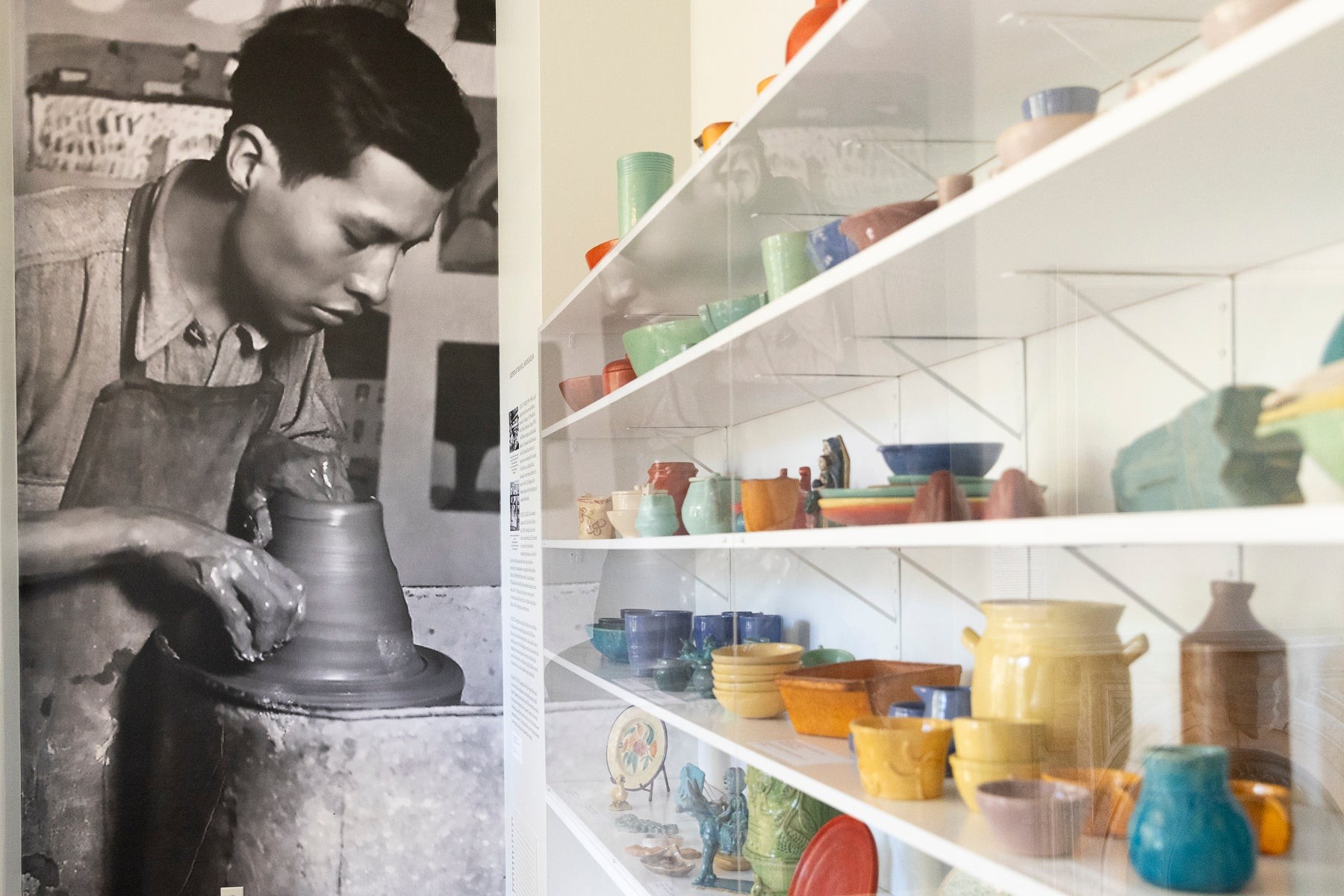 Ceramics in bold colors sit in a glass case at the Hull-House Museum.
Ceramics in bold colors sit in a glass case at the Hull-House Museum.
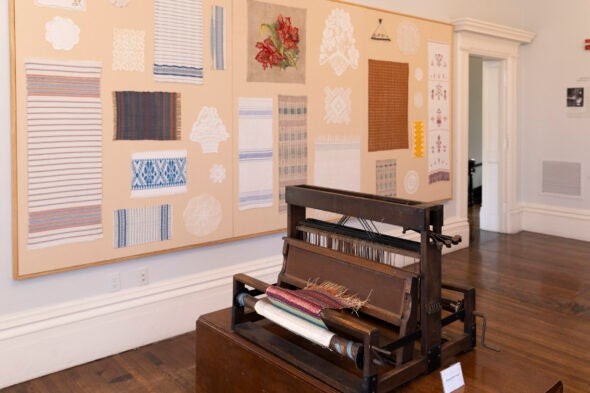 A historic loom sits among centuries-old textiles at the Hull-House Museum.
A historic loom sits among centuries-old textiles at the Hull-House Museum.
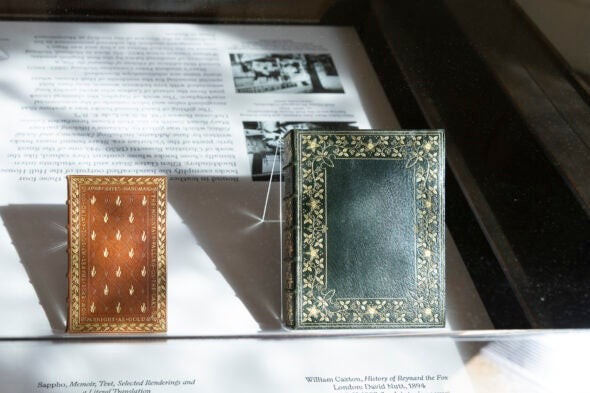 Historic boks bound at the Hull-House Settlement.
Historic boks bound at the Hull-House Settlement.
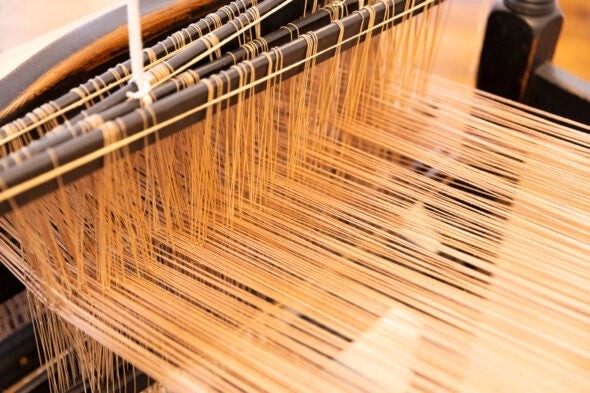 Closeup of string on a historic loom.
Closeup of string on a historic loom.
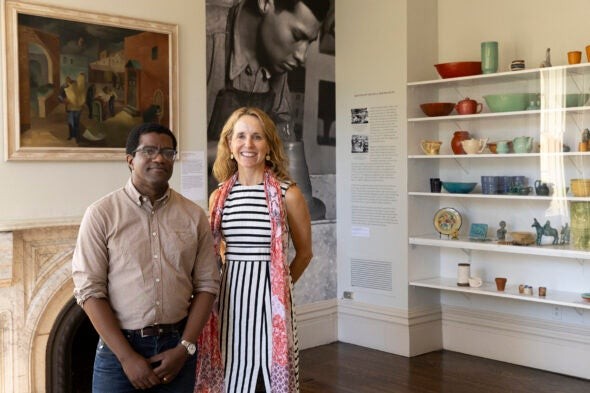 Two people stand in the Hull-House Museum in a room with photos on hte wall and old historic ceramics in bold colors.
Two people stand in the Hull-House Museum in a room with photos on hte wall and old historic ceramics in bold colors.
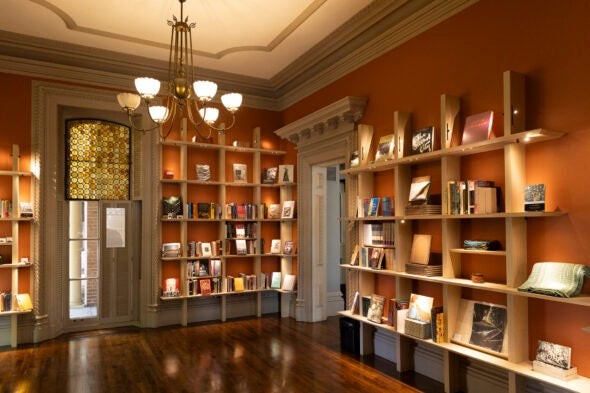 Books fill shelves at Hull-House Books
Books fill shelves at Hull-House Books
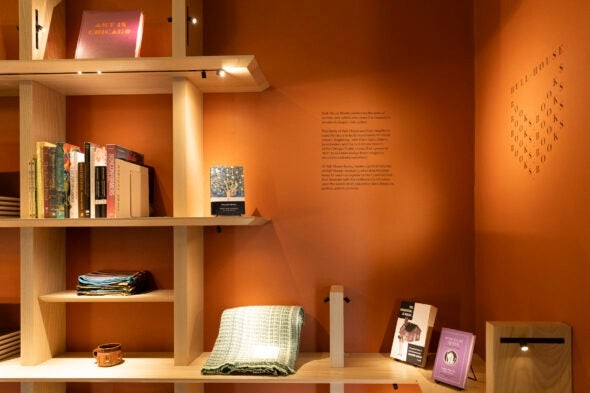 Books fill shelves at Hull-House Books
Books fill shelves at Hull-House Books



